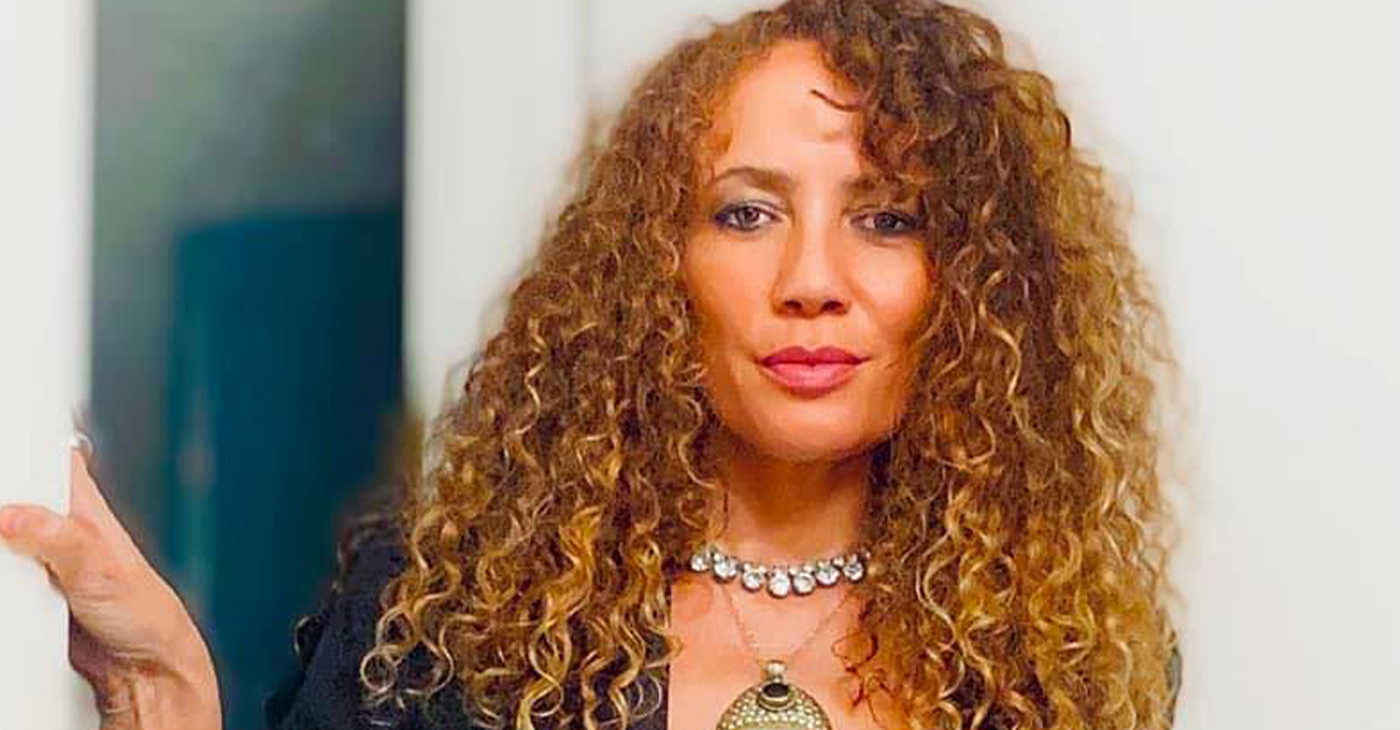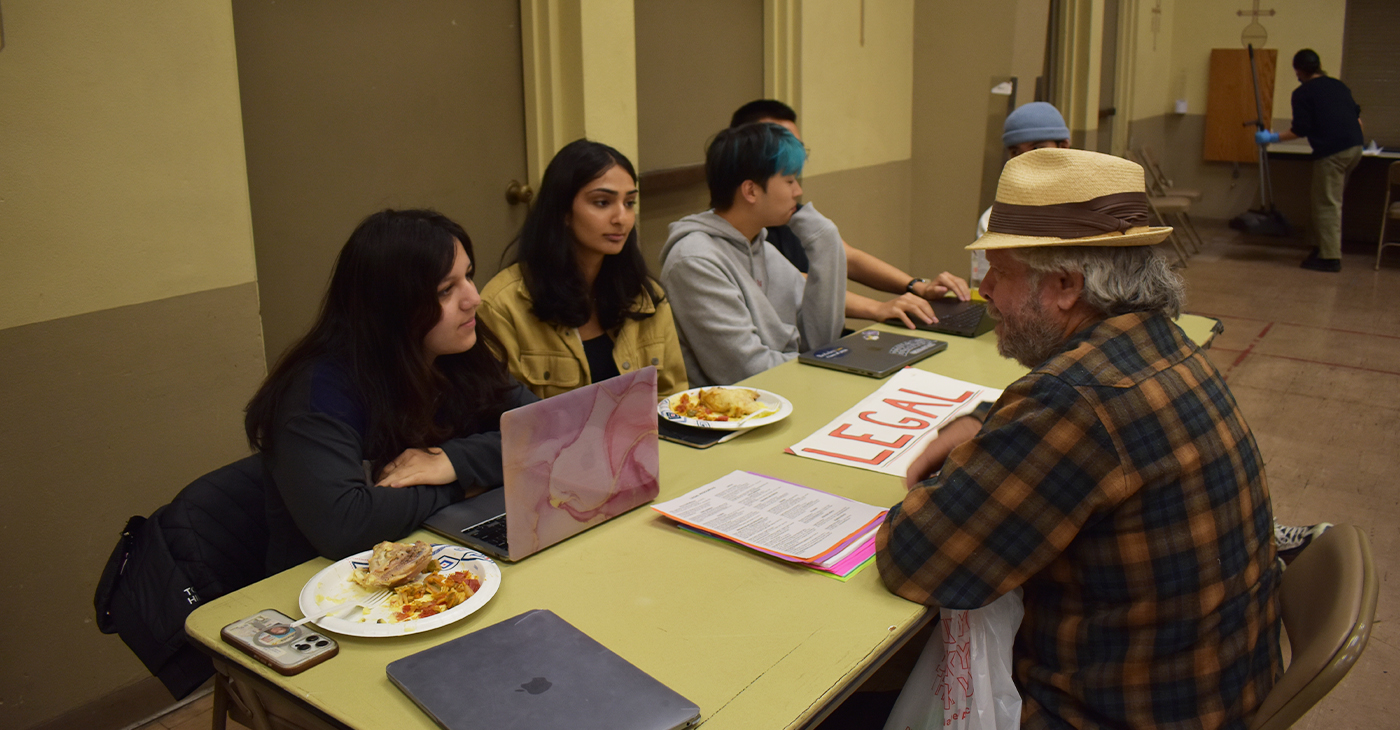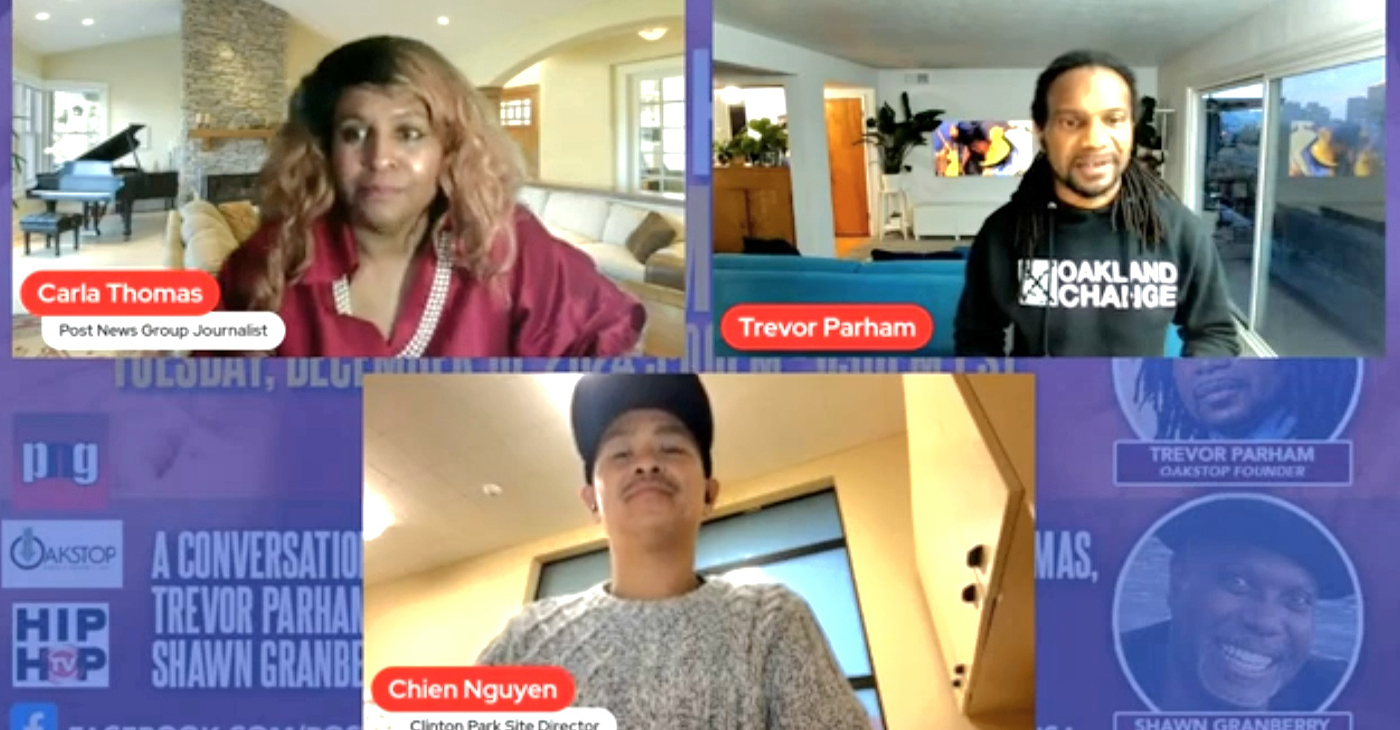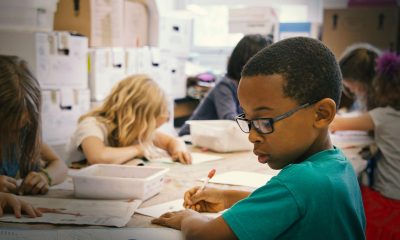Health
OP-ED: Unhealthy state of affairs regarding Black health
THE PHILADELPHIA TRIBUNE — There is no disagreement that African Americans have worse health outcomes across the board. Researchers, scientists, sociologists, and doctor all agree. Data and statistics reflect the dismal reality that if you are African American, you will be more likely to die at birth, die giving birth, grow up sicker, be diagnosed of a life-threatening illness later, and die sooner.
By Glenn Ellis
There is no disagreement that African Americans have worse health outcomes across the board. Researchers, scientists, sociologists, and doctor all agree.
Data and statistics reflect the dismal reality that if you are African American, you will be more likely to die at birth, die giving birth, grow up sicker, be diagnosed of a life-threatening illness later, and die sooner.
What is less known, and agreed upon, is the fact that the determining factors for all of these outcomes, is not because one is African American, but because of what are known as social determinants of health.
It’s true, research had concluded that medical care and is only responsible for 10 to 20 percent of a person’s health: regardless of what color they are. The remaining 80 to 90 percent is attributed to these social determinants of health (SDOH).
Doctors see this every day in their patient population. A recent survey by The Physician Foundation revealed that 90%of the doctors in this country say that most of their patients have a social condition that poses a serious threat to their health. Only 1 percent of the doctors surveyed felt that none of their patients were affected by SDOH.
So, what exactly are social determinants of health?
According to the World Health Organization (WHO), these are the “conditions in which people are born, grow, live, work, and age”. In other words, the conditions of health are alarming in communities with poor SDOH such as unstable housing, low income, unsafe neighborhoods, and/or substandard education.
One only has to look at every city (urban and rural) to see how this plays out in most of our lives.
In the United States, it is SDOH, not race that accounts for the dismal health outcomes for African Americans. In fact, the inequities in outcome are clear all the way down to the level of neighborhoods in the same city.
Several years ago, The Robert Wood Johnson Foundation initiated a first of its kind initiative to look at life expectancy by neighborhood in respective cities around the country.
Known as United States Small-Area Life Expectancy Estimate Project (USALEEP), the found shocking differences in life expectancy of as much as 20 years for residents in the same city, living just a few miles apart; in some cases, just a few blocks.
Further examination of the data shows that, almost with exception, neighborhoods with the lowest life expectancy were those with substantial African American or Latino populations.
As the cities in this country become more gentrified, we are seeing the health outcomes for the black and brown people in this country worsen.
Are there other reasons that HVI/AIDs is a chronic condition for whites, while it continues to be an epidemic in the African American communities in this country? Or, black women are two to six times more likely to die from complications of pregnancy than white women? And their babies almost three times the infant mortality rate as whites?
Is it due to the genetic makeup of African Americans? I think not!
Every human being on the planet is 99.99 percent identical. A difference of 0.01 percent is all that separates us from each other. That means that the 3 billion pairs of genes (human pairs) that make up our individual genetic code are equal to a book with 262,000 pages. The individual differences between us represents only 500 of those pages!
Understanding this is what will allow us to stop using race, a totally social construct, in the concepts of medicine and healthcare. Instead, we must realize how much of our human and financial resources are “misused” applying race to issues of health.
We can see it in how, even today doctors have been found to believe that there is something about being African American that results in not providing adequate pain medications due to the belief that we have a higher tolerance for pain, because of our skin color. The same phenomena were observed even in children at Emergency room with appendicitis; African American children were denied pain medication for the same reason.
Most alarming to me are the implications as we move further into genomic medicine.
If we are not careful, we can see research from this endeavor to further engrain the notion that there are racial differences that justify our higher rates of high blood pressure; diabetes; and other diseases and conditions.
Currently, policy, legislation, and funding are directed towards supporting the theory that African Americans are more susceptible to poorer health outcomes, while SDOH are being largely ignored.
Dr. Richard Cooper of Loyola University has done research on high blood pressure that has made an indisputable case for the dismissal of the fallacy of African Americans being “predisposed” to poor health outcomes.
In his research, Dr. Cooper studied high blood pressure in Nigerians, Jamaicans, and in African Americans. His conclusions: only African Americans had the highest rates of high blood pressure. To further make the case, he found that Germans and Russians has rates that were significantly higher than African Americans!
Seems like its more about being African American in this country, than it is about just being African American.
It begs the question: Is it race or is it racism?
Glenn Ellis is a Research Bioethics Fellow at Harvard Medical School and author of “Which Doctor?” and “Information is the Best Medicine.” He has a weekend podcast at www.wurdradio.com. For more good health information, visit www.glennellis.com.
This article originally appeared in The Philadelphia Tribune.
Activism
2024 in Review: Seven Questions for Frontline Doulas
California Black Media (CBM) spoke with Frontline Doulas’ co-founder Khefri Riley. She reflected on Frontline’s accomplishments this year and the organization’s goals moving forward.

By Edward Henderson, California Black Media
Frontline Doulas provides African American families non-medical professional perinatal services at no cost.
This includes physical, emotional, informational, psychosocial and advocacy support during the pregnancy, childbirth and postpartum period. Women of all ages — with all forms of insurance — are accepted and encouraged to apply for services.
California Black Media (CBM) spoke with co-founder Khefri Riley. She reflected on Frontline’s accomplishments this year and the organization’s goals moving forward.
Responses have been edited for clarity and length.
Looking back at 2024, what stands out to you as your most important achievement and why?
In 2024, we are humbled to have been awarded the contract for the Los Angeles County Medical Doula Hub, which means that we are charged with creating a hub of connectivity and support for generating training and helping to create the new doula workforce for the medical doula benefit that went live in California on Jan. 1, 2023.
How did your leadership and investments contribute to improving the lives of Black Californians?
We believe that the revolution begins in the womb. What we mean by that is we have the potential and the ability to create intentional generational healing from the moment before a child was conceived, when a child was conceived, during this gestational time, and when a child is born.
And there’s a traditional saying in Indigenous communities that what we do now affects future generations going forward. So, the work that we do with birthing families, in particular Black birthing families, is to create powerful and healthy outcomes for the new generation so that we don’t have to replicate pain, fear, discrimination, or racism.
What frustrated you the most over the last year?
Working in reproductive justice often creates a heavy burden on the organization and the caregivers who deliver the services most needed to the communities. So, oftentimes, we’re advocating for those whose voices are silenced and erased, and you really have to be a warrior to stand strong and firm.
What inspired you the most over the last year?
My great-grandmother. My father was his grandmother’s midwife assistant when he was a young boy. I grew up with their medicine stories — the ways that they healed the community and were present to the community, even amidst Jim Crow.
What is one lesson you learned in 2024 that will inform your decision-making next year?
I find that you have to reach for your highest vision, and you have to stand firm in your value. You have to raise your voice, speak up and demand, and know your intrinsic value.
In a word, what is the biggest challenge Black Californians face?
Amplification. We cannot allow our voices to be silent.
What is the goal you want to achieve most in 2025?
I really would like to see a reduction in infant mortality and maternal mortality within our communities and witness this new birth worker force be supported and integrated into systems. So, that way, we fulfill our goal of healthy, unlimited birth in the Black community and indeed in all birthing communities in Los Angeles and California.
Activism
A Student-Run Group Provides Critical Support Services to Underserved Residents
Those visiting The Suitcase Clinic can get legal advice, sign up for food assistance, receive housing resources, get medical help, or enjoy a hot, fresh meal. They can also get haircuts and foot washes from the student volunteers. Nilo Golchini, executive director of the clinic, said one of the goals for most of the students working there is helping bridge the gap of trust that exists between many unhoused people and the healthcare and social welfare systems.

Part One
By Magaly Muñoz
Every Tuesday evening, the dining hall of First Presbyterian Church fills up with dozens of people eating, laughing and moving from table to table, receiving much-needed services from UC Berkeley students – just a few blocks away from the university’s campus.
Individuals seeking support services can be found in this multi-stationed room on the south end of the church talking to law students, student case managers, or receiving medical attention in a corner by healthcare professionals.
This weekly event is hosted by Cal students through a volunteer-run program called The Suitcase Clinic.
The clinic, founded in 1989, was intended to offer free resources to underserved communities in Berkeley and surrounding cities. The majority of the clinic’s clientele are unhoused or low-income people looking for extra support.
Those visiting the clinic can get legal advice, sign up for food assistance, receive housing resources, get medical help, or enjoy a hot, fresh meal. They can also get haircuts and foot washes from the student volunteers.
Nilo Golchini, executive director of the clinic, said one of the goals for most of the students working there is helping bridge the gap of trust that exists between many unhoused people and the healthcare and social welfare systems.
During their tenure in the program, many of the students say they become strong advocates for homelessness rights.

Visitors of the Suitcase Clinic can receive haircuts and foot washing by student volunteers every Tuesday evening. Photo by Magaly Muñoz.
“We’re also standing in solidarity with them. So, it’s not saying, ‘I’m going to help you, but I’m also going to stand with you,’” Golchini said.
Student volunteers get extensive training prior to working directly with clients. Those interested have to take a semester-long class to become versed in areas such as outreach, intersectionality, how to interact with unhoused people, how to sign people up for social services. and more.
Volunteers then get to pick from three different clinics: General, Women’s, or Youth and LGBTQ+.
The General Clinic is the most popular among visiting residents, while Women’s and Youth/LQBTQ+ have more specialized services for attendees.
The Women’s Clinic has many of the similar services to General, but also includes nail painting, childcare, and massages.
The Youth and LGBTQ+ Clinic offers a safe space for young people navigating living on the streets, with services that include housing referrals, wellness and recreation classes and employment resources.
Golchini explained that it’s important for them to keep these clinics separate because the different demographics experience poverty and homelessness differently than those who visit the General Clinic.

Suitcase Clinic student workers posing for a photo with a frequent clinic attendee. The Clinic is open to Berkeley unhoused and low-income residents who need medical or legal service, or a hot meal. Photo by Magaly Muñoz.
“We’re able to provide spaces where people can come in and feel safe and not feel like they’re constantly worried that something’s going to happen to them,” she said.
An outreach team also visits encampments every other Saturday in the Berkeley area to provide hygiene kits and encourage people to visit the in-person clinic, if possible.
However, Golchini said engagement has been low for some time now due to a recent decision by the U.S. Supreme Court that allows cities to ban and cite people for sleeping on the streets.
She said a lot of their clientele got displaced to other cities over time, making it difficult to stay in contact with the services the Clinic was providing for them.
But that hasn’t slowed down the students at the Clinic, if anything, it has pushed them to do more for the community they serve.
Activism
Post News Group Hosts Second Virtual Town Hall on Racism
“While our society tends to rebrand over the decades, we find hate as the new word, broadening its arch of issues in society,” said show host and Post News Group Global Features Journalist Carla Thomas. “However, the very first form of hate, which is racism, built this country.”

By Post News Group
Post News Group Global Features Journalist Carla Thomas recently hosted a second Virtual Town Hall on Racism, with guests including community builders Trevor Parham of Oakstop and Chien Nguyen of Oakland Trybe.
Thomas opened the town hall by paying homage to the ancestral losses of the African diaspora and to the Indigenous tribes, the enslaved, the freed, and the trailblazers of the Civil Rights Movement, Black Lives Matter Movement, and those more recently victimized by police brutality.
After thanking Bay Area non-profits for their work, Thomas led a thoughtful discussion on the importance of acknowledging racism as the first form of hate that built America.
“While our society tends to rebrand over the decades, we find hate as the new word, broadening its arch of issues in society,” she said. “However, the very first form of hate, which is racism, built this country,” she said.
“That act of othering, creating a narrative that made African people, indigenous people, and ultimately melanated people, labeled as less than human justified the colonizers act of subjugating our ancestors to inhumane, incomprehensible treatment for over 400 years,” said Thomas.
Parham of Oakstop, located at 1721 Broadway, explained that Nazi Germany patterned its mistreatment and extinction of Jews in the Holocaust after chattel slavery in America and the Jim Crow apartheid system that followed it.
“Nazi Germany found America’s treatment of Blacks so inhumane and denigrating that they (decided) it would actually be the perfect ingredient to undermine another group of people,” said Parham. “So, they essentially borrowed from what Americans did to Black people.”
Thomas pivoted the discussion to the limitations placed on Black America’s generational wealth through policies of red-lining, redevelopment, and title deeds to this day, based on the idea that no Black or indigenous person is allowed to purchase property or land.
“For this reason, there continue to be impoverished Black communities throughout the nation,” she said.
“The structures of racism from red-lining to lack of access to capital continue to restrict Black (people) in America; this structural racism kind of finishes you before you even start,” added Parham. “The lack of generational wealth has left our communities at a disadvantage because with generational wealth we’d have the resources to police our own communities and build further.”
Nguyen, Clinton Park site director for Oakland Trybe, spoke about his parents’ journey as immigrants from Vietnam, the challenges of being teased in school, and how his troubled brother was murdered.
Nguyen has turned his personal tragedies into triumph, pivoting from a career as an eight-year business owner in the Little Saigon community of East Oakland, to now a non-profit leader transforming and reclaiming the community’s Clinton Park at International Boulevard and Sixth Street..
“A park represents community, and between the pandemic, illegal activities, and homelessness, the park needed to be re-established, and we now offer programming for the youth and extended community,” he said.
“Between Oakstop’s business model of purchasing commercial properties and transforming them into beautiful spaces for community ownership, business space, and special event hubs, and Oakland Trybe’s ability to transform public spaces central to a community and empower our communities, we have solutions,” Thomas said.
Throughout the conversation, Parham referred to a press conference hosted at Oakstop in August where NBA icons Jason Kidd and Jaylen Brown pledged to raise $5 billion for Black businesses in the nation.
“Inspired by Black Wall Street, Jaylen began with Boston and created the Boston Xchange because he became aware of a statistic noting that white households in Boston average $250,000 and Black households averaged a mere $8 in wealth,” Parham said.
In Oakland, he established the Oakland Xchange to expand the movement right at Oakstop, he said.
Thomas encouraged viewers to connect with her guests and tap into the dozens of organizations making a change. “I encourage you to join your chambers of commerce, your community-based organizations, non-profits, and churches to uplift and rebuild the community,” she said.
Thomas also suggested that the NAACP as a great start. “The Oakland chapter’s resolution developed around racism was adopted by the national NAACP, and at the Afrotech Conference, national NAACP leader Derrick Johnson announced a $200 million fund to support Black funders.”
Thomas informed viewers of the California vs. Hate, initiative, a non-emergency hate incident and hate-crime reporting system to support individuals and communities targeted for hate.
“Your reports inform the state of where to designate resources and extra support,” said Thomas.
For more information, visit PostNewsGroup.com, CAvsHATE.ORG or call 1-833-8-NO-HATE.
-

 California Black Media4 weeks ago
California Black Media4 weeks agoCalifornia to Offer $43.7 Million in Federal Grants to Combat Hate Crimes
-

 Black History4 weeks ago
Black History4 weeks agoEmeline King: A Trailblazer in the Automotive Industry
-

 California Black Media4 weeks ago
California Black Media4 weeks agoCalifornia Department of Aging Offers Free Resources for Family Caregivers in November
-

 California Black Media4 weeks ago
California Black Media4 weeks agoGov. Newsom Goes to Washington to Advocate for California Priorities
-

 Activism3 weeks ago
Activism3 weeks agoOakland Post: Week of November 27 – December 3, 2024
-

 Activism4 weeks ago
Activism4 weeks agoOCCUR Hosts “Faith Forward” Conference in Oakland
-

 Activism4 weeks ago
Activism4 weeks agoRichmond Seniors Still Having a Ball After 25 Years
-

 Bay Area4 weeks ago
Bay Area4 weeks agoRichmond’s New Fire Chief Sworn In



























































